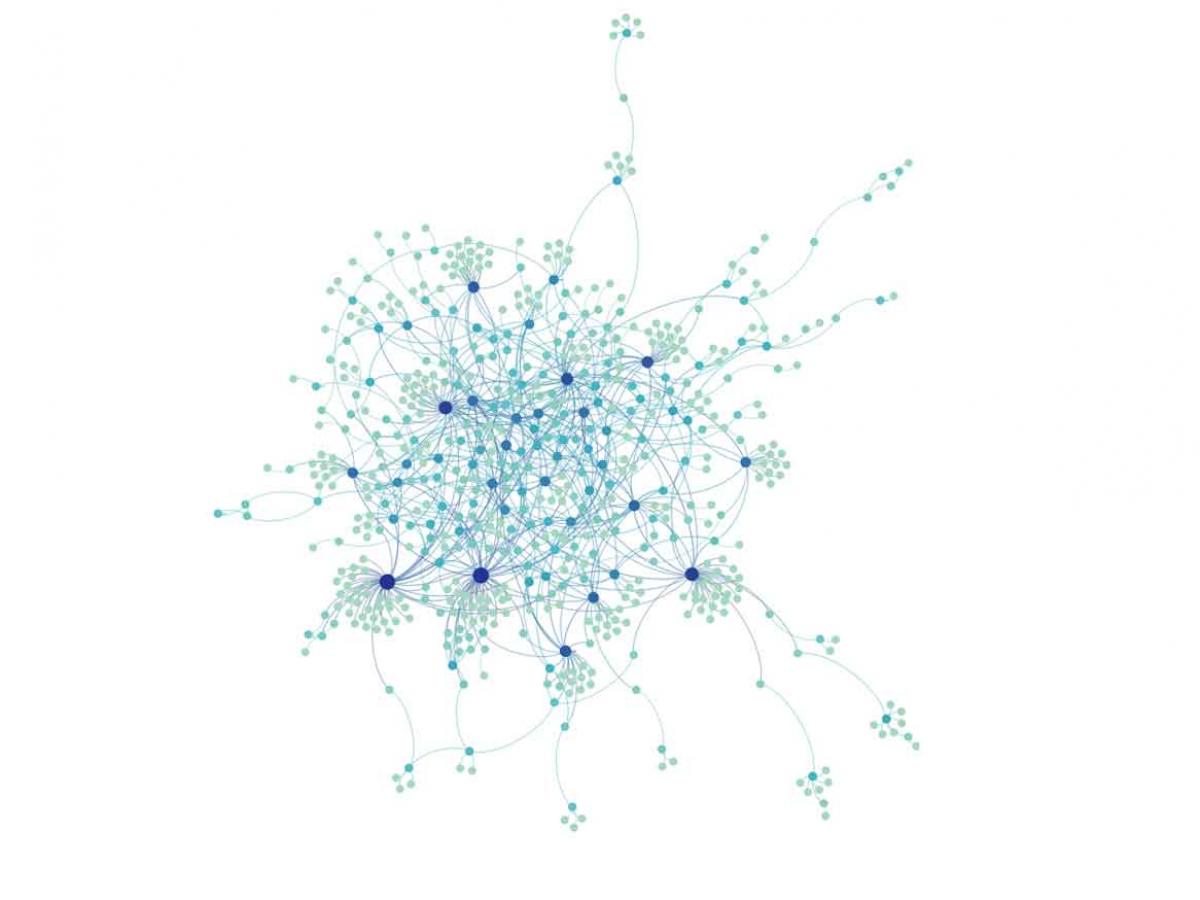Stochastic Modelling and Operations Research
Stochastic Modelling and Operations Research involves using mathematics to understand and make decisions in systems that involve randomness and/or uncertainty.

This network shows a snapshot of conversations on social media prior to a major public event. Nodes represent individuals and links represent mentions on Twitter. Studying the network topology enables us to identify different classes of users (organisers versus advertisers), and through investigating the timing and content of messages we can make inferences about information flow over the social network.
Our Stochastic Modelling and Operations Research group fuses theory, computation and data to address exciting and important problems throughout the sciences and industry.
We have particular strengths in:
- modelling stochastic systems, particularly using computational techniques
- calibrating stochastic models
- modelling networks and their processes, with applications in energy and the Internet
- modelling in ecology, epidemiology and evolution
- Bayesian computational statistics
- data science
-
Research impact
The Stochastic Modelling and Operations Research group’s advances are of direct relevance and benefit wherever uncertainty and/or randomness exists. This includes, for example, industries and areas such as:
- the Internet
- cyber security
- defence
- power grids
- biosecurity
- conservation science
- health care systems
- infectious disease epidemiology
The group has received significant recognition for its valuable contributions to industry and society, including prestigious medals from the Australian Academy of Science and Australian Mathematical Society.
Some recent real-world impact highlights include:
- advising the Australian Government’s Office of Health Protection on pandemics, including the Australian Health Principal Protection Committee (AHPPC) on the COVID-19 pandemic
- decision support, technology change planning, near real-time operations tools for designing telecommunications network resilience
- developing algorithms to estimate pandemic strains’ transmissibility and severity
- advising the Australian Government’s Office of Health Protection on pandemics, including the Australian Health Principal Protection Committee (AHPPC) on the COVID-19 pandemic
- developing tools for predicting events and behaviours using open social media data, which are now being built into forecasting tools for government use
-
Lead researchers
Research team Expertise Dr Indu Bala Optimization, artificial intelligence, natural language processing, and data mining techniques Dr Andrew Black Stochastic modelling in ecology; epidemiology and evolution; Bayesian computational statistics; computational probability Dr Anna Kalenkova Process mining, event data analysis, visual analytics, and information theory Professor Lewis Mitchell Computational social science; natural language processing; ensemble data assimilation and prediction Professor Matthew Roughan Network modelling; Internet measurement and management; traffic analysis To enquire about consulting or working with us on a research project, please contact our lead researcher within the School of Computer and Mathematical Sciences:
-
Consulting services
Our Stochastic Modelling and Operations Research group is available to advise or lead public- and private-sector projects to assist understanding and decision-making in any large systems that involve randomness and/or uncertainty.
-
Collaboration
We collaborate with various industry and government organisations, including:
Higher degree by research opportunities
Whether you intend to work in research or industry, a higher degree by research can give you a competitive edge throughout your career.
Find out more about studying a Master of Philosophy Master of Philosophy (MPhil) or Doctor of Philosophy (PhD).

